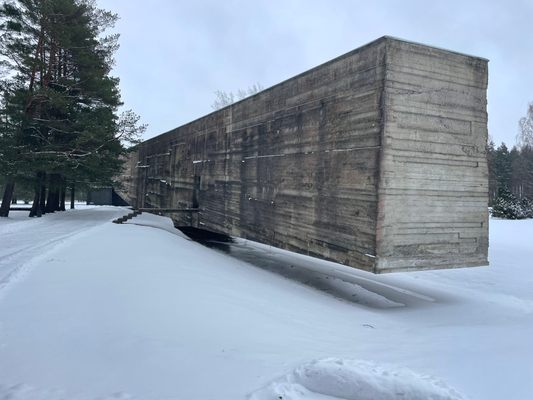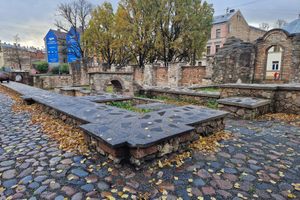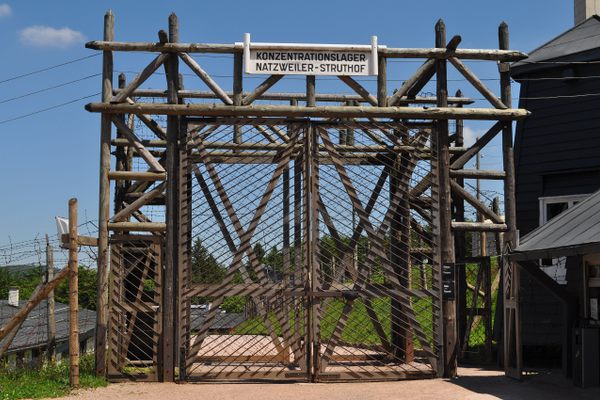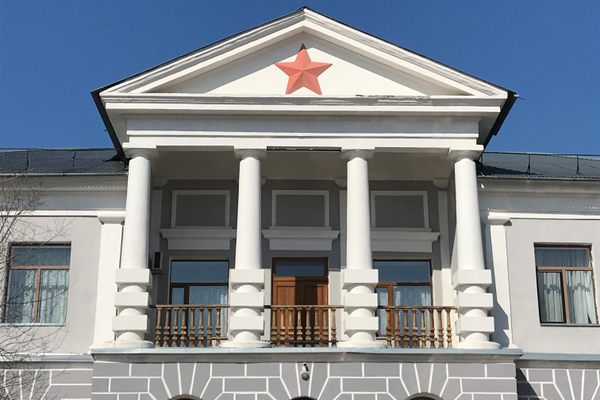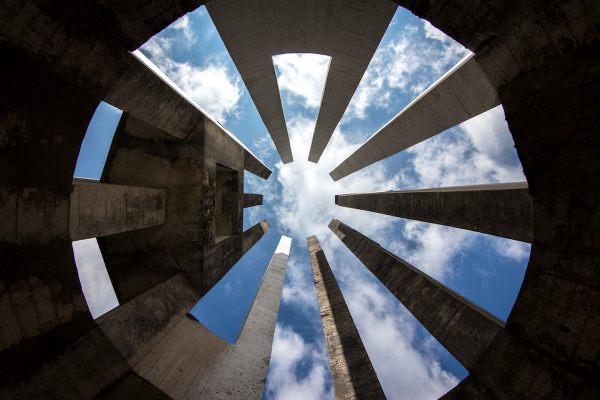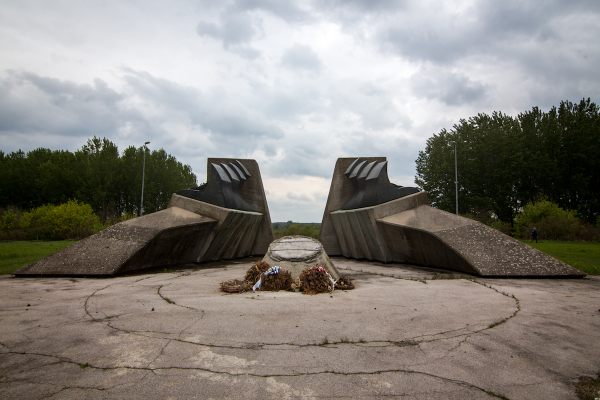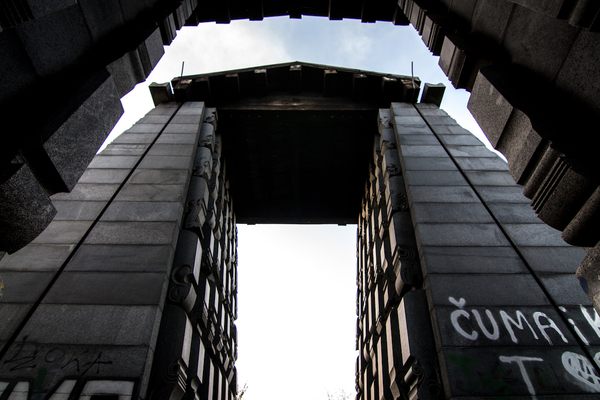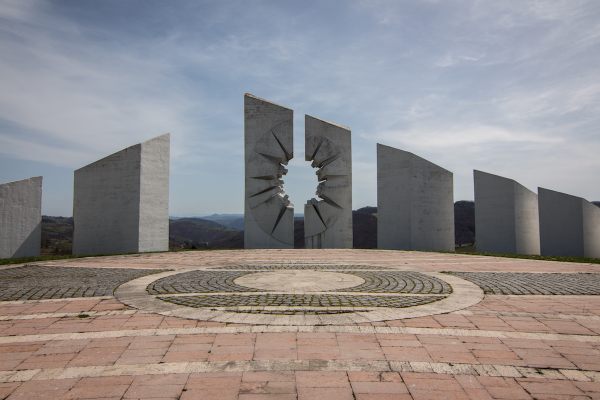About
When admiring the beauty of the Salaspils Memorial and the heavy forests that surround it, it’s stirring to realize that what is now an incredibly peaceful piece of nature is burdened with such a violent past.
Established in 1941, Salaspils served as an “extended police prison,” which later included a “labor correctional camp.” Latvian Security Police originally intended for the grounds to be used for a concentration camp, but the leadership of the Reich Security Main Office in Berlin did not give permission. But that distinction didn't keep the camp from its own share of experiments, exploitation, and death.
Though Salaspils was not a death camp—there were no gas chambers or gassing trucks—between 2,000 and 3,000 prisoners died there. Conditions for the survivors were grim and laborious. And the prison didn’t only house adult detainees—it’s estimated that roughly 2,000 children passed through the camp as well.
The children were held in special barracks, separated from their parents, and given badges with their names. While they weren't forced into the same labor as the adults, they suffered through their own miseries of malnourishment, outbreaks of disease, and medical experiments. Some reports show that only 200 or so children died in the camp, as many were sent to foster families throughout the region. But around the time the construction of this memorial began, a grave containing the remains of more than 600 children was found near the grounds.
Today, Salaspils is a peaceful, beautiful requiem. Wrapped within walls of forests, the entire clearing is solitary and quiet but for the installation of the haunting metronome exhibit that plays a faint heartbeat heard throughout the grounds. The small indoor section of the memorial doesn't overwhelm with informational placards and exhibits. Instead, the memorial aims to create a feeling of remembrance.
The gigantic Soviet-style monuments convey the life at the camp. “The Unbreakable” monument captures the spirit of the prisoners while “The Mother” stands tall to protect her children in the face of “The Solidarity” of those in power. Perhaps most moving, is “The Humiliated,” cowering meekly behind a tree, hiding from terrors we are left to imagine.
Related Tags
Know Before You Go
From Riga, take the train to Dārziņi Station (not Salaspils station). From there, cross the tracks and follow the dirt trail leading into the woods. At its first split, go up the hill and soon after, a paved road can be followed to the memorial. But it is worth keeping an eye on your GPS just in case as there are shortcuts through the woods along the way. While the memorial has opening hours, they only apply to the small indoor section. So getting sun rise/set photos of the monuments outside of those hours is possible. Also note, there are no shops, employees, or bathrooms. Bring a flower to leave at The Metronome exhibit.
Published
August 5, 2019



